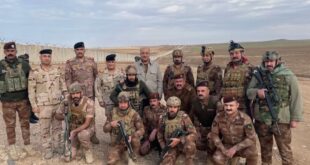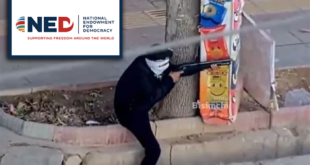The parents of five victims in the politically-charged case gave emotional testimony at a Skopje court as they faced those accused of killing their sons.The parents of five victims in the politically-charged case gave emotional testimony at a Skopje court as they faced those accused of killing their sons.With tears in their eyes, the parents described to the court their futile efforts to make phone contact with their missing loved ones on the day of the murder, before their bullet-riddled bodies were discovered near the Skopje ring road on April 12, 2012.
The father of the murdered high school graduate Filip Slavkovski said the family had been constantly trying to reach their son because he hadn’t returned home on the night of the murders, but his phone went unanswered.
The father of the killed Aleksandar Nakjevski could barely read his son’s phone number when asked to do so in court by the prosecution.
“I keep his number first in my phone book, I will never erase it,” he said through his tears.
When discovered, the bodies of Filip Slavkovski, Aleksandar Nakjevski, Cvetanco Acevski and Kire Trickovski, all aged between 18 and 20, were all in a line and the appeared to have been executed.
The body of 44-year-old Borce Stevkovski was found a short distance from the others.
Most of the relatives of those killed told the court on Tuesday that they still do not know whether they will demand compensation from the defendants if they are convicted.
“I have lost my 44-year-old son, what kind of compensation could I ask for now?” Bozin Stevkovski, the father of Borce Stevkovski, said when asked by the court.
The trial in the high-profile case which has become known as ‘Monster’started on January 10.
So far, four of the six defendants, Agim Ismailovic, Fejzi Aziri, Rami Sejdi and Haki Aziri have pleaded not guilty to terrorism charges.
The two other suspects, Alil Demiri and Afrim Ismailovic, remain at large.
According to the charges, Demiri and Afrim and Agim Ismailovic committed the murders with automatic rifles, while the others provided logistical support.
The prosecution claims that the killings were a terrorist act intended to provoke ethnic turmoil.
News of the murder raised ethnic tensions after groups of ethnic Macedonians staged protests, some of them violent, blaming the killings on members of the country’s large ethnic Albanian community.
In May, police arrested 20 allegedly radical Muslims, including four of the defendants, during an operation in several villages around the capital.
In 2001, there were violent clashes between government forces and ethnic Albanian rebels which ended with the signing of the Ohrid peace accord that granted more rights to Albanians.
The trial is due to continue on Thursday.
 Eurasia Press & News
Eurasia Press & News


